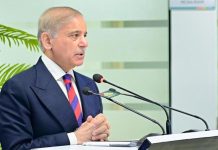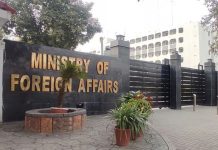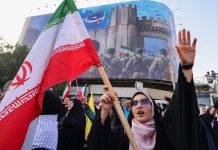
Mir Ghiyas Ud Din Abidi Tirmizi:
The state of Jhansi was confiscated by
the ruling Brutish Government
after the death of Raja Ganga Harao. The widow,
Queen Lakhshmi and her deceased husband’s friend, a retired senior police officer SSP Mir Syed Ghiyasuddin (Abidi) Tirmizi arranged, trained and took the freedom fighters to help Queen of Jhansi.
Mir Syed Ghiyasuddin Tirmizi was one of the descendants of Hazrat Zain-ul-Abideen (a.s) and his ancestors, namely Syed Kamaluddin Tirmizi who came from Tirmiz (a city in present-day Uzbekistan) for preaching Islam in the district of Karnal, Shahab Ud din Ghori
attacked Delhi (Imperial Gazellet of India, Vol XV, Page 51). Another ancestor from this family Mir Shamuddin Tirmizi served as minister of Ameer Taimur and was given the Jagir of Pondri in recognition of his services.
In 1761, a Sikh chief named Bhai Desa Singh forcibly captured this Jagir of Pondri with the help of his army. Mir Ghiyasuddin Tirmizi recruited many educated Syed youth from the Karnaal and Ambala
districts, to help Queen Lakhmi’s army. He imparted them combat training in the mountains of Bundhelkhand. Finally, at the start of 1857, the British got the news about Mir Ghias military preparations. To confirm this news, Henry Lawrence, the commissioner Oadh, wrote a letter to Mir Ghiyasuddin asking him to refrain from helping the Queen of Jhansi and promised to return his ancestral jagir of Pondri, which was occupied by Bhai Desa Singh in 1761 but later taken over by the British from his sons. Mir Ghiyasuddin did not reply to this letter and accelerated his preparations after being concealed in the mountains of Bundhelkhand with his companions. Meanwhile, Henry Lawrence was killed as a result of an attack from revolutionary freedom fighters in Lucknow on 4th July 1857, eliminating any further correspondence opportunities.
On 23rd March 1858, a large number of British Army attacked the state of Jhansi under the leadership of General Sarhaf. In this battle, Mir Ghiyasuddin and his companions came out from the fort of Jhansi many times and caused heavy human and capital losses to the British Army. After surrounding the fort for nine days, the British captured the main gate of the fort with the help of the treachery of a few traitors. Queen Lakshmi, along with her most trusted few companions which also include Mir Ghiyas ud din, fleed the fort during nighttime while strapping her son on her back, and reached Calpi.
Here she again started organizing her army and preparing for another war. After a few days, the British army under the leadership of Brigadier Whahtlock reached about 40 km distance from Calpi, where the Mujahideen and the British fought a pitched battle
for many days. Because this time the British army was huge in number and also carried the latest war equipment and weapons, therefore Mujahideen army was defeated. In this battle, Mir Ghiyas ud din embraced martyrdom after fighting valiantly.
The grandson of Mir Ghiyasuddin, Mir Syed Imtiazuddin Tirmizi, was also a police officer called Darogha Police in Panipat at the time of partition. He ordered to shoot at the Sikhs who were killing the immigrants on the train in 1948. To take revenge on this, the Sikh attacked his house and killed his young son, Syed Ayaz by throwing him to the ground from the roof of three storey house. They also took away all his belongings. After the creation of Pakistan, Mir Imtiazuddin Tirmizi migrated to Shahpur city,
District Sargodha with his surviving family. Later he died there. The Grand grandson of Mir Ghias Ud din tirmizi, Brig Syed Karrar Hussain is a well-known writer, unit commander of a peace keeping unit in Sierra Leon Africa, a
Defence analyst and a well-reputed Social Work leader and Deputy chairman of Pakistan Police Civil Society Trust.


























